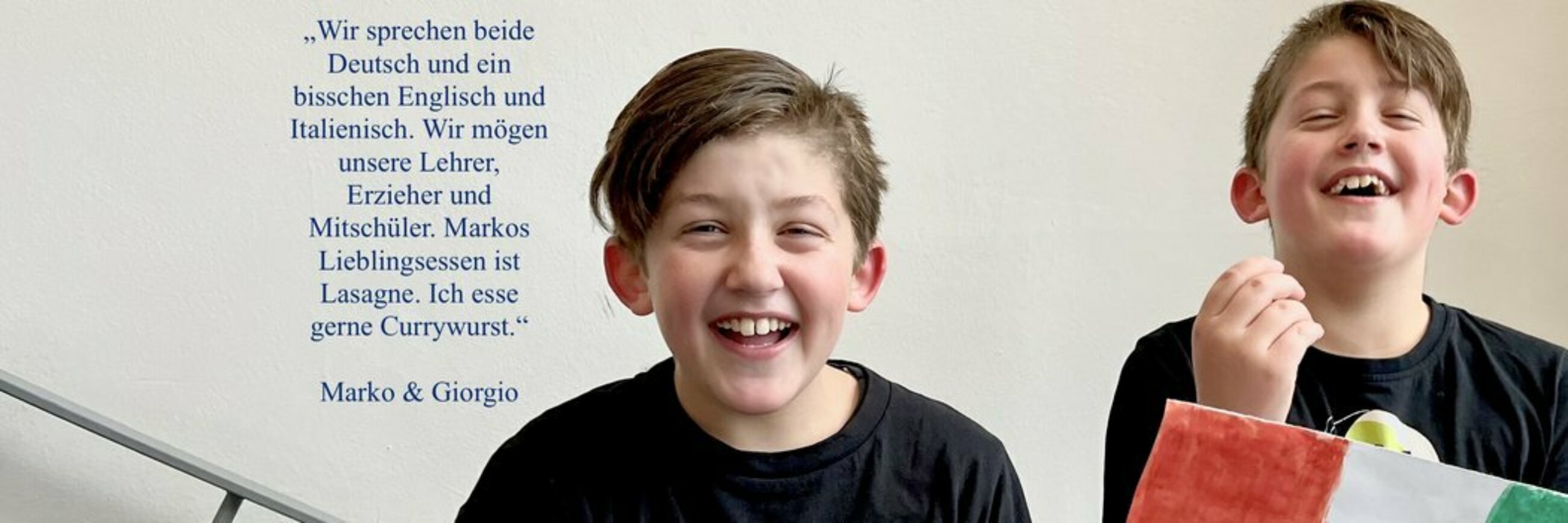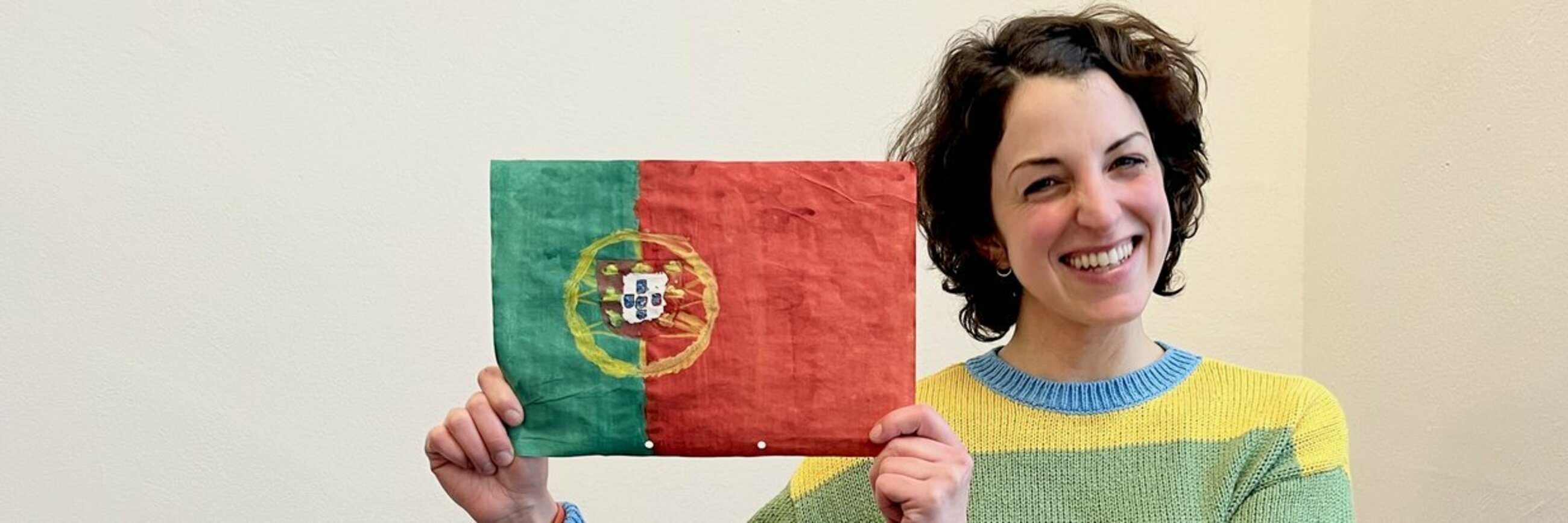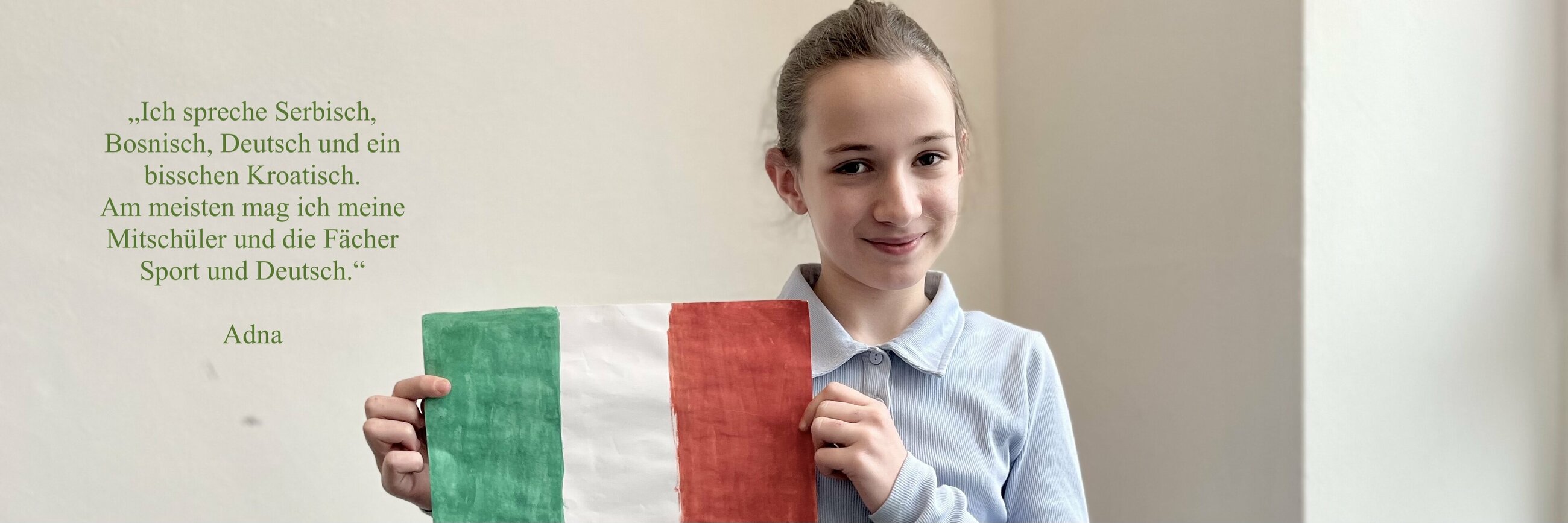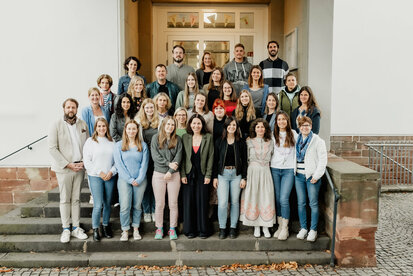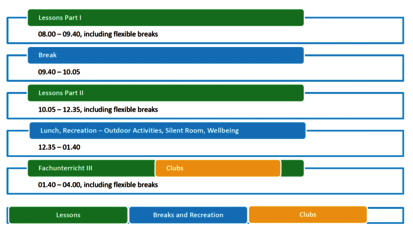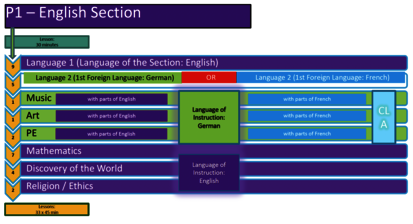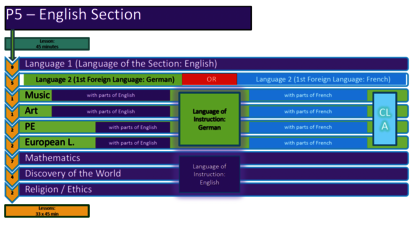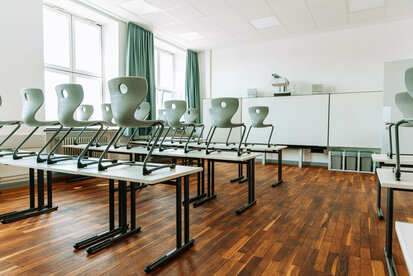Our school
We, the European School Saarland (ESS), are part of the system of European Schools represented throughout Europe. The ESS is the first state school in the system of European Schools in Germany. Our school is open to all children and is free of charge for parents. The school system is divided into a five-year primary and a seven-year secondary school education. Schooling leads to the European Baccalaureate, a certificate recognized as an international entrance qualification to university and higher education.
On 2 September 2021 we opened our doors for the first time to the students. A total of 43 children became part of our school community on that day. 27 children in the German and English language section currently attend P1. 18 children are part of the English and German P5. Our students are currently taught and cared for by 18 teachers and 5 educators. Many of our staff members have themselves been abroad for a longer period of time and have taught there, for example, at a German-International or a European School. Others already have a lot of experience in bilingual teaching or have a degree in European Studies. The teaching staff is as colorful and diverse as our students, which leads to a wide variety of cultural and linguistic backgrounds.
Teach and Care
Our students study in a full-day program from 8 am to 4 pm. Optionally, we offer after-school care until 6 pm. As an independent child and youth welfare organization, ASB provides the staff for our socio-educational team on behalf of the school authorities (Regional Association and City of Saarbrücken). An essential part of our school concept is the interlocking of learning and leisure time within the school day. The pedagogical staff designs the offers and activities in the bound and unbound free time of the students.
The selection of activities is based on the individual interests of the children. The activities are also based on the European character of the school. In the free time, the children are free to choose which of the numerous activities they want to take part in. In contrast, the free time has a project character. Here, content is continuously deepened and successively related to one another. Some children are drawn to the Social Games Club or the Builders' Club; other children enjoy relaxation with our relaxation teacher. She manages to ground the children during a long day with the help of self-written dream journeys. Recently, extracurricular activities for the students, such as learning to play an instrument, have also been integrated into the school day.
Special features of the European School Saarland
The two language sections, German and English, enable us to teach children with German or English as their dominant language. Children in the English language section are thus alphabetized in English from the 1st grade and also learn in their native language in other subjects such as mathematics or Discovery of the World.
In the subsidiary subjects of art, music and physical education, instruction takes place across sections. This means that children from the German and English sections are taught together in these subjects. In these lessons German is the basic language - English and French are integrated. For our children, this change of language within a lesson is simply part of the experience. The children benefit from this by absorbing the new foreign language along the way. The use of both languages is authentic and meaningful for the students.
The promotion of intercultural competencies takes place by living diversity in everyday school life and making it an integral part of it. Starting at the primary level, we awaken an interest in foreign languages and cultures among the youngest students, thus making Europe alive for them. Already in the morning at the beginning of the lessons, the children come together in the morning circle to greet each other in one of the languages spoken by the children. In the subject Discovery of the World, the children tell about their favorite European festivals throughout the year or prepare a European breakfast together with lots of goodies. These small elements, which are a consistent part of each subject, show the diversity of our children. At the same time, the children learn to be open towards what is still foreign to them. We thus give students confidence in their own cultural identity and at the same time open their hearts to the diversity of Europe.
Languages at the ESS
In addition to strengthening the mother tongue, we place great emphasis on multilingualism, the acquisition of other foreign languages. The first foreign language English (in the German section), German (in the English section) or French (in both sections) is taught in five lessons per week from the first grade onwards. The second foreign language starts in S1 (6th grade). Here, students can choose between Italian, Spanish, French and English. In the higher grades, the first foreign language then becomes the language of instruction, as more and more subjects are taught in the foreign language. The long-term goal is to create an immersive learning environment through multilingual students and teachers.
Digital learning
In addition to the linguistic focus, we emphasize digital learning. Thus, all classrooms of the European school have an interactive whiteboard, access points for WLAN and LAN connections, and an Ipad charging cabinet. The four-column media concept interlinks the key areas of infrastructure, implementation, progress and responsibility. For example, the concept envisages the targeted use of existing technical resources to promote both media competence and the learning of content through and with media support. Under the concept of blended learning, both analog and digital teaching and learning methods are used. The students use the Online-Schule-Saarland as a course platform, create cross-sectional learning videos for language exchange and work with subject-specific apps in class.
Furthermore the media concept includes regular teacher training as well as media education projects for the individual classes. The implementation of the media concept enables the students to learn in a contemporary and flexible way and helps to foster critical thinking and creativity.
Lifelong learning
As part of the Community of European Schools, we integrate eight key competencies as a foundation of our subject portfolio:
- the mother tongue competence (reading and writing competence)
- foreign language competence
- mathematical and scientific literacy
- digital literacy
- personal and social competences and learning strategies
- civic competence
- cultural awareness and expression
For us, these key competencies are a dynamic combination of knowledge, skills, and attitudes that a learner has to develop from childhood throughout life. For us, they are the competencies that all people need for personal fulfillment and development, employment, social inclusion and active citizenship, and are therefore considered the basis of learning at the European School.


